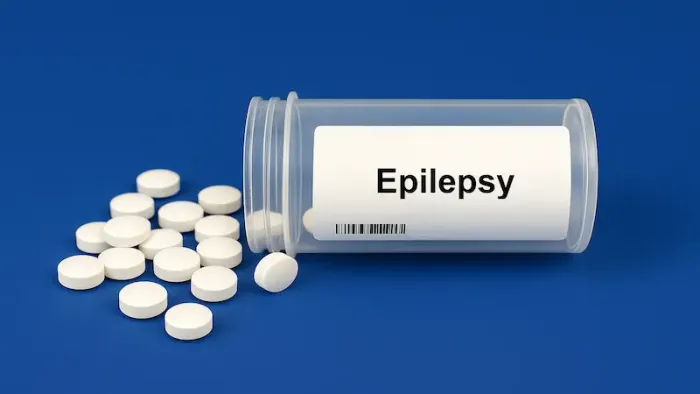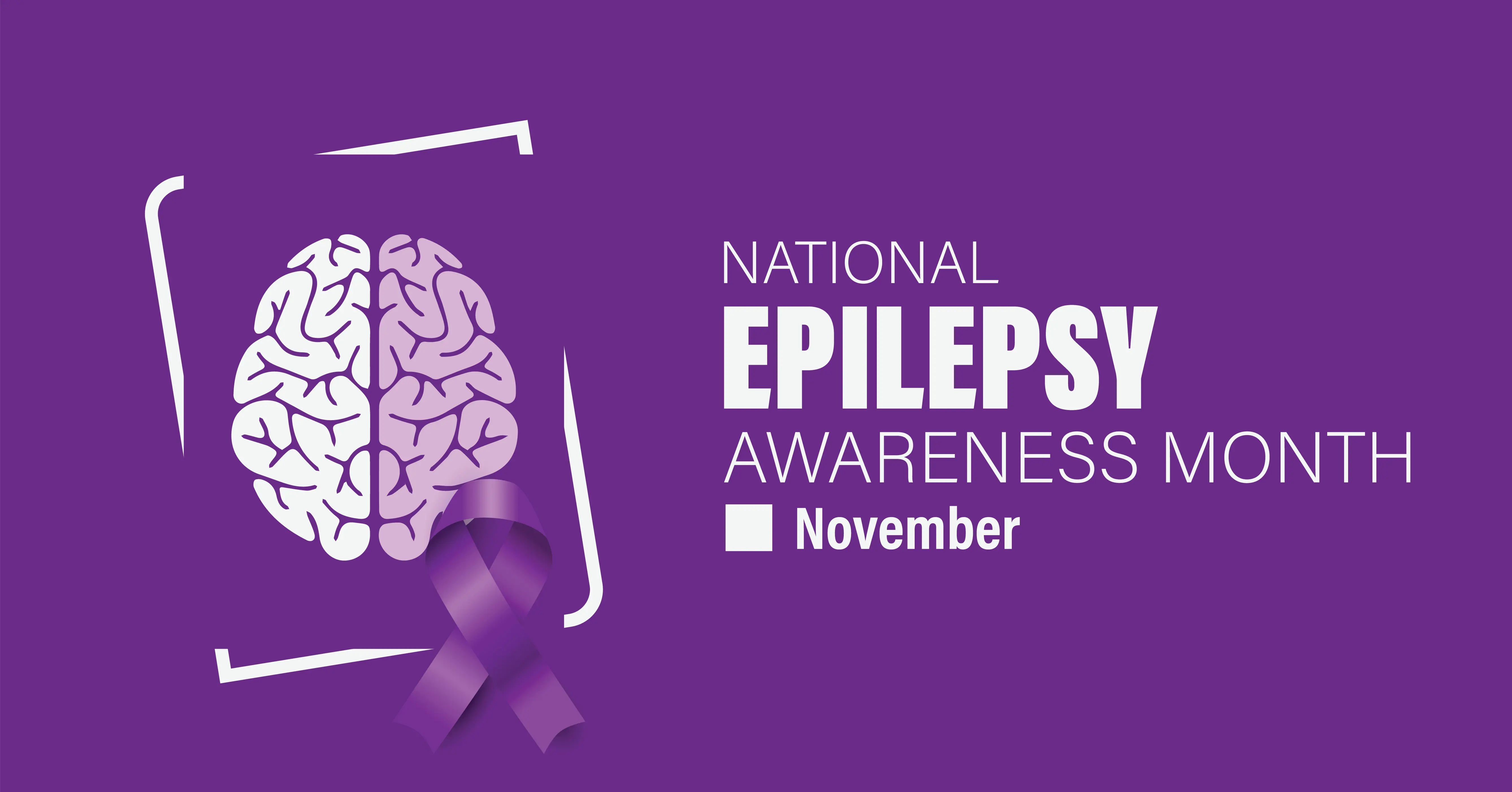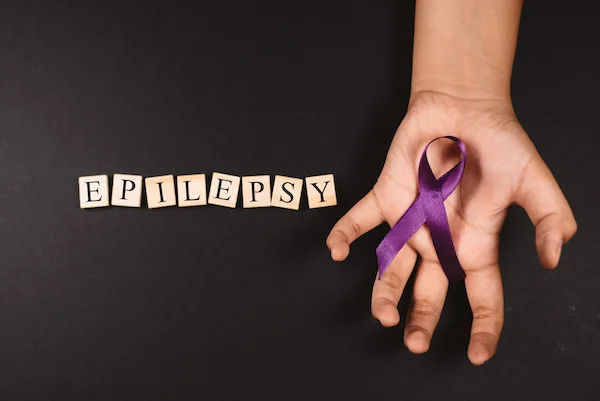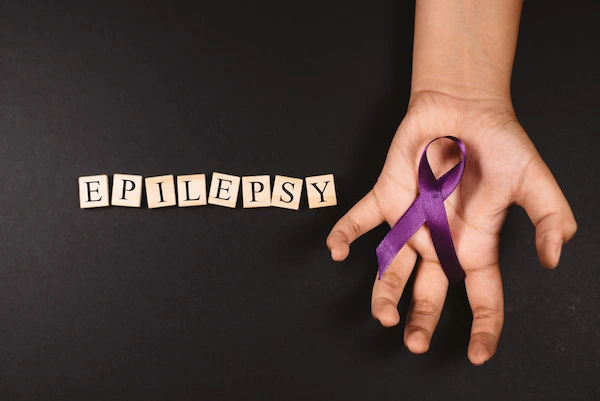Understanding Epilepsy
Epilepsy is a neurological disorder characterized by recurrent seizures. Learn about the causes, symptoms, diagnosis, and treatment options for epilepsy, and find resources for managing the condition and living a full life.

Written by Dr. Siri Nallapu
Reviewed by Dr. Dhankecha Mayank Dineshbhai MBBS
Last updated on 13th Jan, 2026

Introduction
Epilepsy is more than just seizures; it's a complex neurological disorder that affects millions of people worldwide. Characterized by recurrent, unprovoked seizures, it arises from sudden, excessive electrical discharges in the brain's nerve cells. Imagine it as an electrical storm in the brain, disrupting normal communication between neurons and leading to a wide range of physical and sensory symptoms. While the condition can be daunting, understanding epilepsy is the first step toward effective management and living a full, active life. This guide will demystify the condition, exploring its various types of seizures, potential causes, the latest diagnostic methods, and comprehensive treatment options. Whether you, a loved one, or someone you know is navigating this journey, knowledge is your most powerful tool.
What is Epilepsy? Defining the Neurological Disorder
Epilepsy is a chronic noncommunicable disease of the brain that affects people of all ages. According to the World Health Organization (WHO), approximately 50 million people globally have epilepsy, making it one of the most common neurological diseases. The core definition involves a tendency to have recurrent seizures. It's crucial to understand that a single seizure does not constitute epilepsy. The diagnosis is typically made after a person has had two or more unprovoked seizures separated by at least 24 hours.
The condition is a spectrum disorder, meaning its manifestations, severity, and impact vary dramatically from one person to another. For some, it may be a well-controlled condition with minimal interference in daily life. For others, it can present significant challenges. The common thread is the abnormal, excessive neuronal activity that defines an epileptic seizure.
The Brain's Electrical System and What Goes Wrong
Your brain is a complex network of billions of neurons (nerve cells) that communicate through electrical and chemical signals. This communication must be precisely regulated for the brain to function correctly. In a person with epilepsy, this delicate balance is sometimes disrupted. Certain groups of neurons may become hyperexcitable and fire in an excessive, synchronized burst. This sudden, intense wave of electrical activity is what causes a seizure. The location of this activity in the brain determines the type of seizure and its symptoms—whether it's a momentary lapse in awareness or a full-body convulsion.
Consult Top Specialists
Recognizing the Signs: Common Symptoms of Epileptic Seizures
Seizure symptoms can be dramatic and obvious or so subtle they go unnoticed. They are broadly categorized into two main groups: generalized and focal seizures. Recognizing these signs is vital for seeking timely diagnosis and managing epilepsy triggers.
Generalized Seizures: Affecting the Whole Brain
These seizures involve both sides of the brain from the outset.
Tonic-Clonic (Grand Mal) Seizures
These are the most recognizable type. The "tonic" phase involves stiffening muscles and a loss of consciousness, often causing the person to fall. The "clonic" phase follows with rhythmic jerking of the limbs and face. Breathing may be irregular, and the person may lose bladder control. After the seizure (in the postictal phase), confusion, fatigue, and headache are common.
Absence (Petit Mal) Seizures
More common in children, these are characterized by brief lapses in awareness that look like staring spells. The person may appear to be "zoning out" for a few seconds, often with subtle eye fluttering or lip smacking. They typically begin and end abruptly, with no memory of the episode.
Focal Seizures: Starting in One Brain Area
Previously called partial seizures, these originate in just one part of the brain.
Focal Aware Seizures
The person remains awake and aware during the seizure. Symptoms depend on the affected brain area and can include sudden emotions, jerking of a body part, or sensory changes like déjà vu, strange smells, or tingling.
Focal Impaired Awareness Seizures
These involve a change or loss of consciousness. The person may appear confused, dazed, and perform repetitive, automatic movements like hand rubbing, chewing, or walking in circles. They will not remember the episode afterward.
What Causes Epilepsy? Unraveling the Triggers and Underlying Factors
In nearly half of all cases, a specific cause of seizures cannot be identified. For the rest, causes are often linked to various factors that affect the brain.
Genetic Influences and Inherited Epilepsy Syndromes
Some types of epilepsy, which are categorized by the type of seizure or the part of the brain affected, run in families. Researchers have linked certain genes to an increased susceptibility to environmental triggers that can cause seizures.
Structural Causes: Head Trauma, Stroke, and Brain Tumors
Any damage to the brain's structure can lead to epilepsy. This includes traumatic brain injury (TBI), stroke (which deprives brain cells of oxygen), brain tumors, and conditions like cerebral palsy. Strokes are a leading cause of epilepsy in adults over age 35.
Infectious Causes and Developmental Disorders
Infections such as meningitis, AIDS, viral encephalitis, and neurocysticercosis (a parasitic infection) can cause epilepsy. Developmental disorders like autism and neurofibromatosis are also associated with a higher risk.
How is Epilepsy Diagnosed? The Path to a Clear Answer
A proper diagnosis is a multi-step process. If you experience a possible seizure, it is crucial to consult a doctor online with Apollo24|7 for further evaluation and to begin the diagnostic journey.
The Importance of a Detailed Medical History and Symptom Diary
The doctor's most valuable tool is a detailed description of the event from the patient and any witnesses. When did it happen? How long did it last? What were the specific symptoms? Keeping a seizure diary can help track patterns and potential triggers.
Diagnostic Tests: EEG, MRI, and Blood Tests
• Electroencephalogram (EEG): This test records the brain's electrical activity through electrodes placed on the scalp. It can detect abnormal patterns that suggest epilepsy.
• MRI (Magnetic Resonance Imaging): This scan provides detailed images of the brain to look for structural causes like tumors, scars, or malformations.
• Blood Tests: These can help rule out other conditions that might cause seizures, such as diabetes, infections, or genetic disorders.
Epilepsy Treatment Options: Regaining Control
The primary goal of treatment is to achieve complete seizure control with minimal side effects. Most people with epilepsy can achieve this, allowing them to lead normal lives.
Anti-Seizure Medications (ASMs): The First Line of Defense
Also known as anticonvulsants, these are the most common treatments. They work by stabilizing the electrical activity in the brain. Finding the right drug and dosage is often a process of careful titration and monitoring. It's essential to take medication exactly as prescribed.
Dietary Therapies: The Ketogenic Diet and Modifications
For some people, particularly children whose seizures are not controlled by medication, a high-fat, low-carbohydrate diet (ketogenic diet) can be highly effective. It forces the body to burn fats instead of carbohydrates, producing ketones, which can reduce seizure frequency.
Surgical Interventions and Advanced Devices (VNS, DBS)
If medications are ineffective (a condition known as drug-resistant epilepsy), surgery may be an option to remove the small area of the brain where seizures originate. For those who are not candidates for resection, devices like the Vagus Nerve Stimulator (VNS) or Deep Brain Stimulation (DBS) can be implanted to help reduce seizure frequency and severity.
Living Well with Epilepsy: Safety, Lifestyle, and Support
A diagnosis of epilepsy involves adjustments, but it doesn't have to define your life. Proactive management is key.
Creating a Seizure Response Plan
Work with your doctor to create a plan that you can share with family, friends, and coworkers. It should include first aid instructions, emergency contacts, and a list of your medications.
Managing Triggers: Sleep, Stress, and Flashing Lights
Identifying and avoiding personal triggers is crucial. Common triggers include lack of sleep, high stress, flashing lights (photosensitivity), alcohol, and illness. Maintaining a regular sleep schedule and practicing stress-reduction techniques like meditation can make a significant difference. If your condition does not improve after trying these methods, book a physical visit to a doctor with Apollo24|7 to reassess your management plan.
Conclusion
Understanding epilepsy is the foundation for overcoming the fear and uncertainty that often accompanies a diagnosis. It is a manageable condition, not a life sentence of limitation. From advanced medications and surgical options to supportive lifestyle changes and a strong medical team, the tools for effective management are more powerful than ever. The journey requires partnership—with your neurologist, your loved ones, and a supportive community. Remember, you are not defined by your seizures. By seeking knowledge, adhering to treatment, and advocating for yourself, you can take control and thrive. If you suspect you or a loved one is experiencing seizures, take the first step today by consulting a healthcare professional for a proper evaluation.
Consult Top Specialists
Consult Top Specialists

Dr. Kumudha Ravi Munirathnam
General Physician/ Internal Medicine Specialist
18 Years • MBBS, DNB (Int Med.), PGD (Diabetology), MNAMS
Chennai
Apollo Speciality Hospitals OMR, Chennai
(200+ Patients)

Dr. Lakshmi Sanjitha Kakani
General Physician/ Internal Medicine Specialist
6 Years • MBBS, MD (General Medicine)
Visakhapatnam
Apollo 24|7 Clinic - Andhra Pradesh, Visakhapatnam

Dr. Amitava Ray
General Physician/ Internal Medicine Specialist
20 Years • MBBS, DNB (Family Med.), PGDHHM, FRSTM&H. Certificate in Geriatric medicine & Diabetes Management.
Kolkata
Apollo Multispeciality Hospitals , Kolkata, Kolkata
(625+ Patients)

Dr. Siri Nallapu
General Practitioner
5 Years • MBBS
Hyderabad
Apollo 24|7 Clinic, Hyderabad

Dr. Chethan T L
General Physician/ Internal Medicine Specialist
5 Years • MBBS, MD, DNB (General Medicine)
Bengaluru
Apollo Medical Center, Marathahalli, Bengaluru
Consult Top Specialists

Dr. Kumudha Ravi Munirathnam
General Physician/ Internal Medicine Specialist
18 Years • MBBS, DNB (Int Med.), PGD (Diabetology), MNAMS
Chennai
Apollo Speciality Hospitals OMR, Chennai
(200+ Patients)

Dr. Lakshmi Sanjitha Kakani
General Physician/ Internal Medicine Specialist
6 Years • MBBS, MD (General Medicine)
Visakhapatnam
Apollo 24|7 Clinic - Andhra Pradesh, Visakhapatnam

Dr. Amitava Ray
General Physician/ Internal Medicine Specialist
20 Years • MBBS, DNB (Family Med.), PGDHHM, FRSTM&H. Certificate in Geriatric medicine & Diabetes Management.
Kolkata
Apollo Multispeciality Hospitals , Kolkata, Kolkata
(625+ Patients)

Dr. Siri Nallapu
General Practitioner
5 Years • MBBS
Hyderabad
Apollo 24|7 Clinic, Hyderabad

Dr. Chethan T L
General Physician/ Internal Medicine Specialist
5 Years • MBBS, MD, DNB (General Medicine)
Bengaluru
Apollo Medical Center, Marathahalli, Bengaluru
More articles from Epilepsy
Frequently Asked Questions
1. What is the difference between a seizure and epilepsy?
A seizure is a single event of abnormal brain electrical activity. Epilepsy is a chronic neurological disorder characterized by a tendency to have recurrent, unprovoked seizures.
2. Can epilepsy be cured?
While there is no universal cure for epilepsy, many types can be effectively managed. Some children may outgrow certain syndromes, and for some adults, surgery can potentially eliminate seizures entirely. For most, the goal is complete seizure control with medication or other therapies.
3. What should I do if I see someone having a tonic-clonic seizure?
Stay calm. Gently roll the person onto their side to keep their airway clear. Place something soft under their head. Do not restrain them or put anything in their mouth. Time the seizure. Call for emergency medical help if the seizure lasts longer than 5 minutes, if another seizure follows immediately, or if the person is injured.
4. Can you die from epilepsy?
While most people with epilepsy live long lives, there is a small risk of a rare condition called SUDEP (Sudden Unexpected Death in Epilepsy). The best way to reduce this risk is to work towards achieving the best possible seizure control with your doctor.
5. Is epilepsy contagious?
No, epilepsy is not contagious. You cannot catch it from another person.




